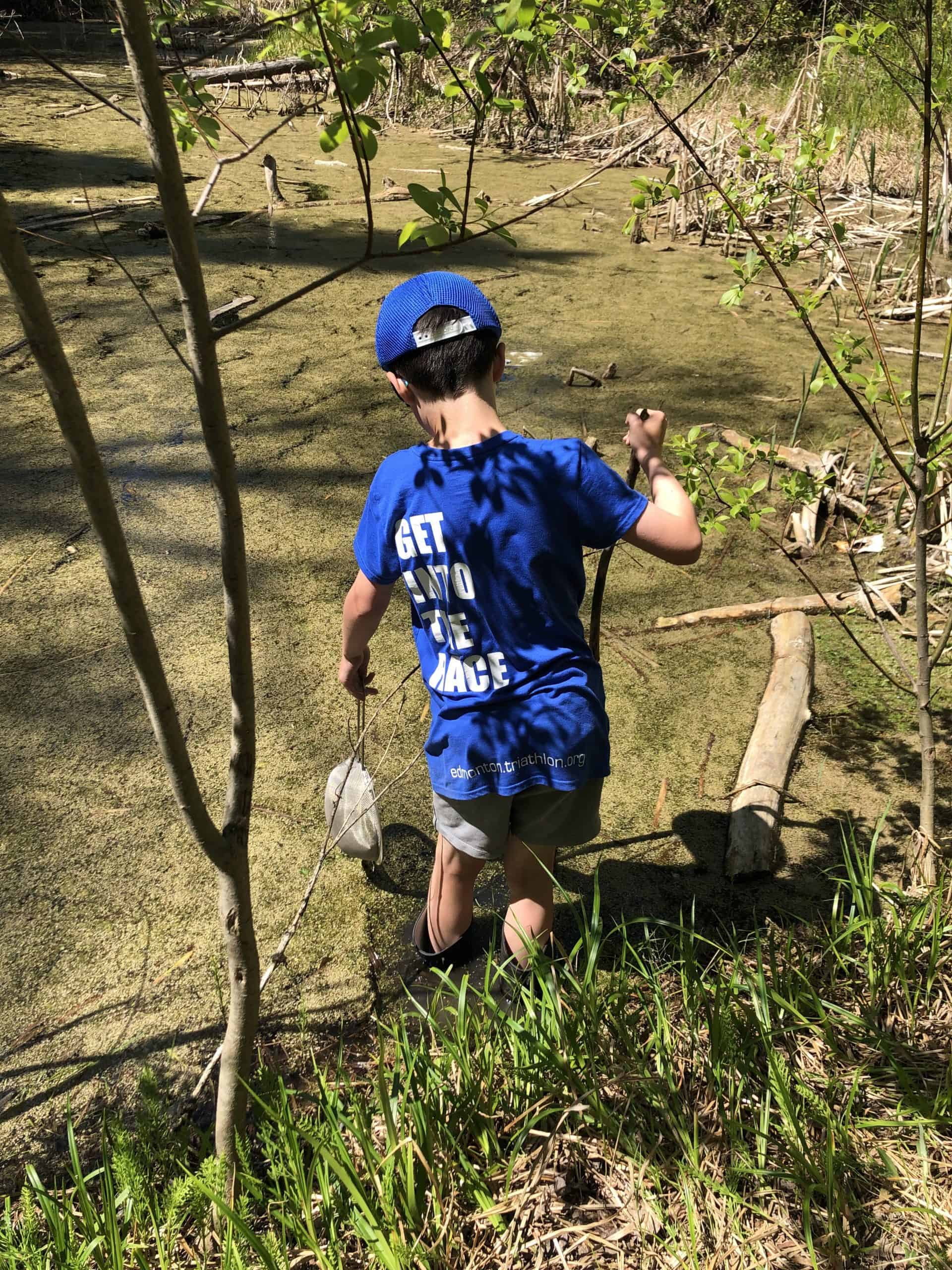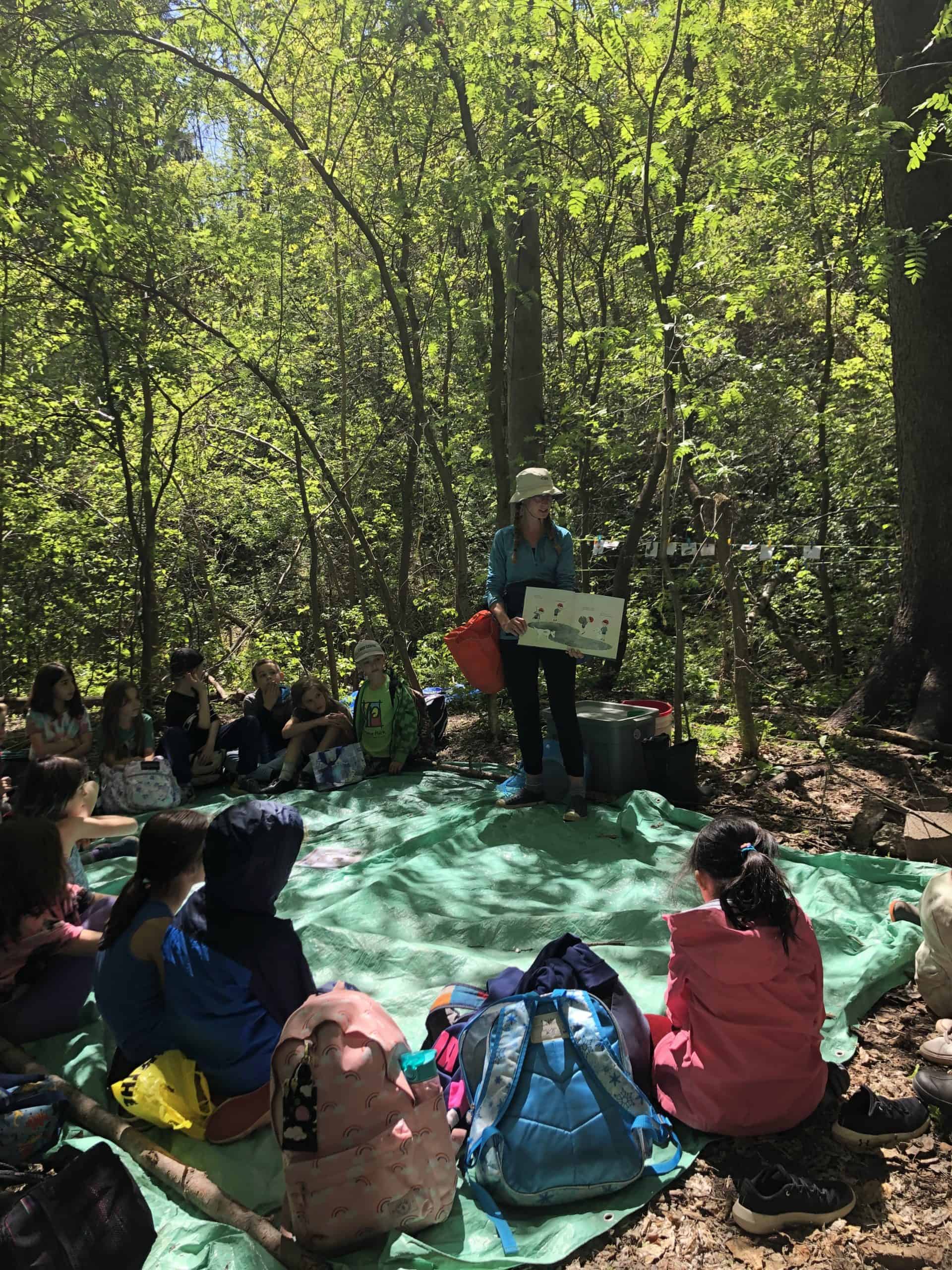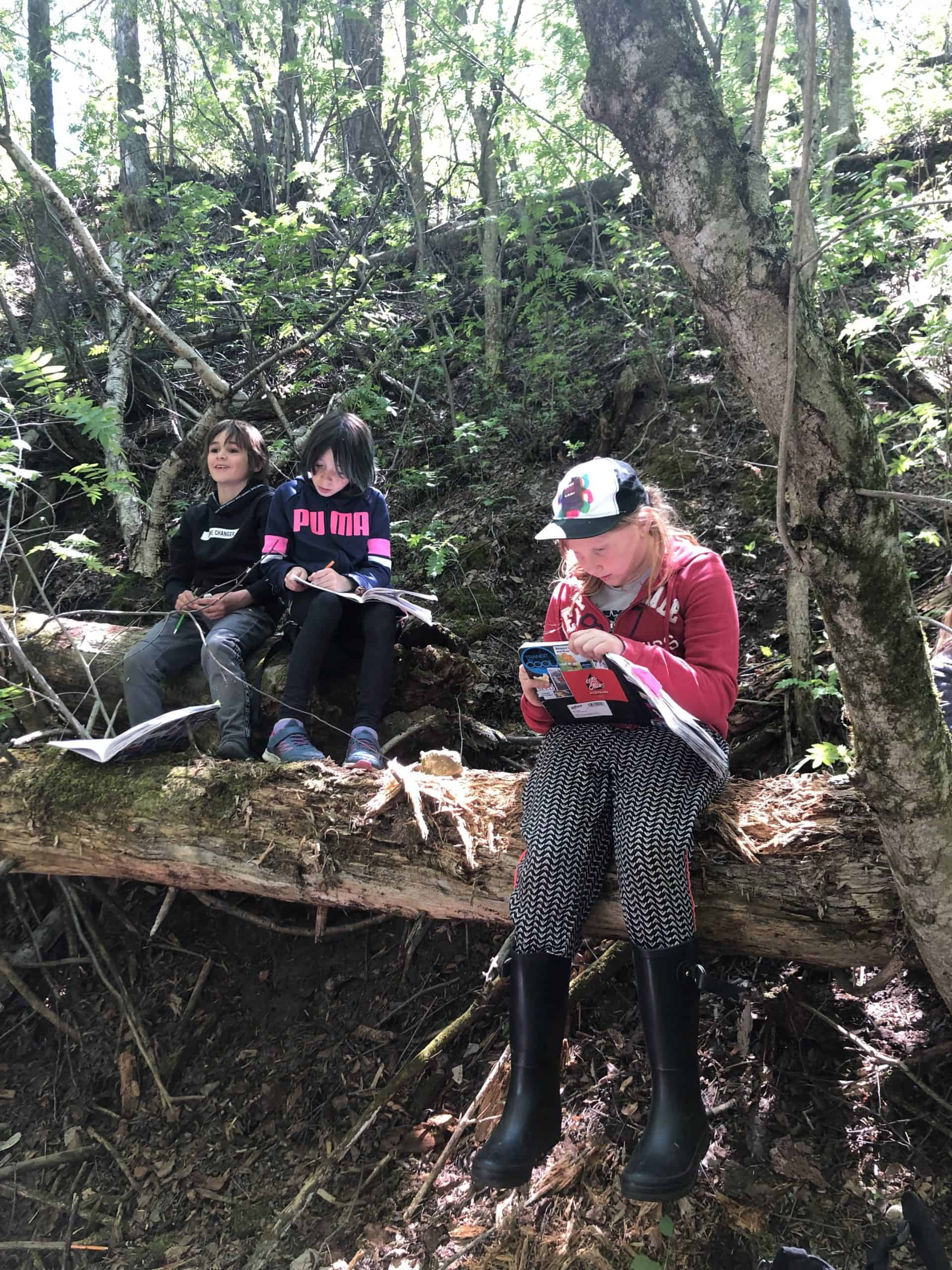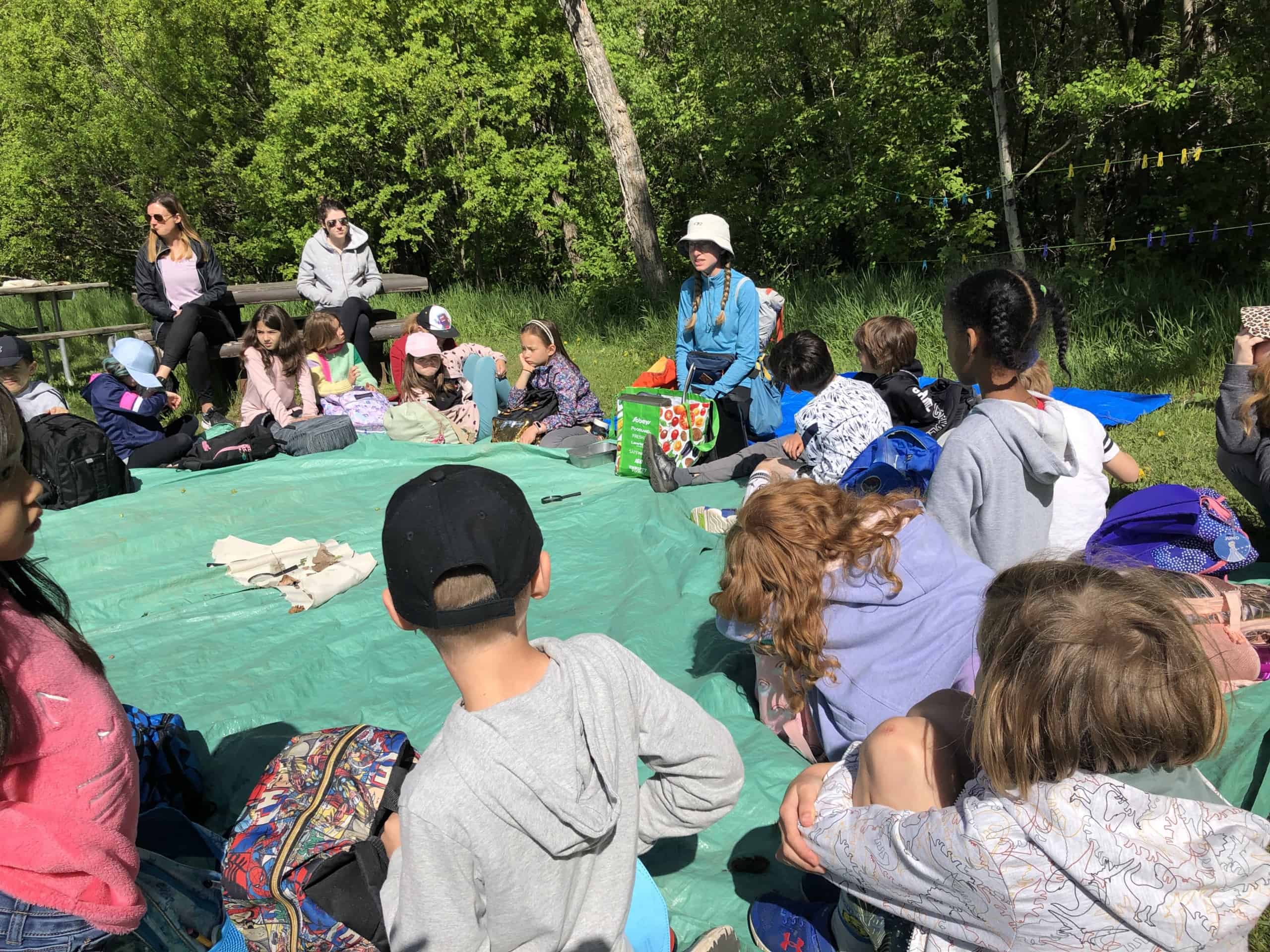Exploring urban green spaces
Edmonton is known for its festivals, for West Edmonton Mall, and for its long and arduous winters. But the city is also known for its incredible urban green spaces that make exploring natural spaces possible within city limits.
Edmonton Forest School (EFS), a not-for-profit society founded in March 2020, decided to capitalize on the abundance of green spaces across the city and teach children the importance of caring for and co-existing with natural spaces.
“Everything we do is working to connect… our learners with the land and the learning that comes from the land,” says Tara Beck, the co-founder and secretary of EFS.
Many original founders of EFS were classroom educators. They loved spending time outdoors and in natural spaces with their students and wanted to share that experience with others.
“Edmonton has certainly got the most incredible green spaces that are accessible and beautifully maintained and cared for,” says Beck. “And so we thought, why not [start a forest school in] Edmonton?”
One of EFS’s goals is to teach kids about the land all year round, regardless of the weather. “Students that are enrolled in our programs, they start with us in September and we are together all the way through to the end of June,” says Beck. “So we get to experience the full arc of Edmonton’s seasons as we learn together and learn from and with the land.”
They use a learner-led teaching style, which means that students can explore what interests them in the outdoors. Educators observe what students are curious about and use those natural curiosities to base their teachings on, whether that means students play in mud puddles for awhile, build a stick house out of fallen branches, or build sculptures out of rocks.
In addition to following the interests of learners, EFS also spends time during every session to read stories together and reflect on the experiences of the day.
“No two days in the classroom look the same because the classroom is just this dynamic living… experience,” says Beck.



The not-for-profit also stresses the importance of being treaty people by incorporating Indigenous teachings into their programming, working with Elders, and connecting students to Medicine Wheel teachings. “We want to make sure that the story is told of the land and those that have cared and stewarded the land since time immemorial,” explains Beck. “So there’s a lot of teachings about reciprocity, the importance of taking care of each other, taking care of ourselves, and taking care of the land.”
“Not all of our educators are Indigenous, but we’re committed as a board to ensuring that there’s a lot of opportunity for us to be working with Indigenous community members in Edmonton.”
Edmonton Forest School runs a variety of programs for different age groups of children, and their home base is located at Gold Bar Park in the Capilano area. They’re also piloting an extended version of their programs by collaborating with Inquiring Minds to create site schools. Site schools move teachers and their classroom to nearby green spaces for a week-long experience that helps students cultivate an appreciation and understanding of the land.
“The hope [is] that [the schools] then continue beyond our week-long experience with that class… to steward and care for and connect with those places,” says Beck.
In June, EFS ran a site school with Virginia Park School in Kinnaird Ravine and at the Edmonton Urban Farm. “It was pretty magical,” says Beck. “We found some beautiful clearings where we were able to set up our home base, our tarp, and share food together and share stories together… And when [you’re] in the middle of that ravine there was no way to tell we were in the middle of a city.”
The Grade 3 class explored singletrack bike paths that went past some of the more well-traveled paths and into the heart of the ravine. They had lots of bird sightings and even glimpsed a coyote from a distance.
Beck hopes EFS programming can help children feel a sense of place in the world, curiosity about what’s around them, and motivation to care for natural spaces.
“The students just grow so exponentially, and the independence that they’re able to achieve and the sense of connection [they create] with the land is really something to behold,” says Beck.
For more information, visit https://edmontonforestschool.com/







